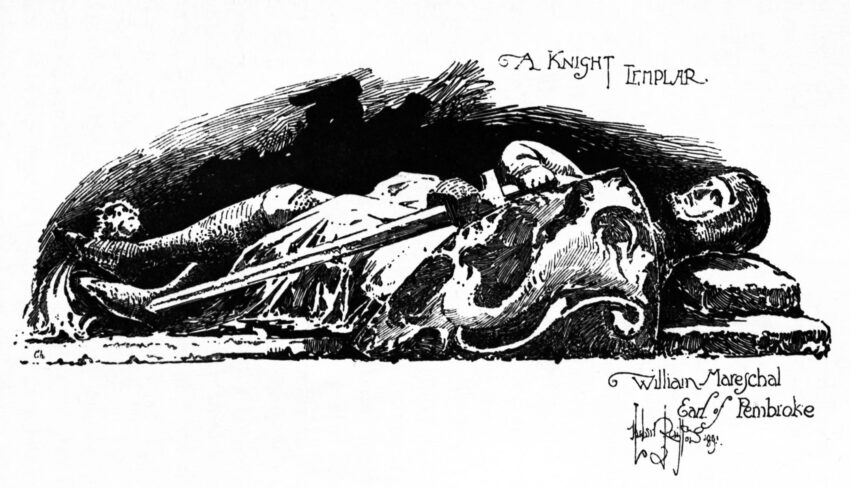Fun fact: I tried having an AI write me a blog post about William Marshal, First Earl of Pembroke a week or two ago. I figured there was a lot of info out there on this famous knight from history. I was hoping this AI would be able to get me a nice, little summary as a mini biography. I got something…… different.
I specified an educated and interested audience and asked for linked references and images.
The results?
Text: The text of the post read like a 5th grader’s book report written not on a book, but on the Wikipedia entry for William Marshal. The sentences were mostly basic and low on information. It was far from my writing style.
Images: Most of the images came from Wikimedia Commons, which in itself is fine, since licensing those is straight forward. They are mostly Creative Commons and Public Domain. The problem is that the links didn’t match. The links went to images on Wikimedia Commons, but to the wrong images that had nothing to do with the topic. They seemed completely random.
References: The article gave 3 reference source links. Two of them went to Wikipedia. One went to “GoodReads” but the reference URL goes to the wrong book and the referenced book doesn’t even seem to exist!
I put it in my blog here in hopes I’d re-write it to be better, but I ended up giving up. The text here is AI, but the layout is mine. The images are also mine.
Have a good chuckle:
The Magnificent William Marshal: Knight, Statesman, and Medieval Icon
In the annals of medieval history, few figures shine as brightly as William Marshal, the first Earl of Pembroke. From humble beginnings to becoming one of the most influential men in England, Marshal’s life is a tapestry woven with courage, loyalty, and political acumen. Join me as we delve into the captivating story of this legendary knight.
The Early Years:
William Marshal’s journey began in the turbulent 12th century. Born the younger son of a minor noble, his prospects seemed modest at best. However, fate had grander plans for him. Trained in the arts of combat and chivalry from a young age, Marshal quickly distinguished himself as a formidable warrior.
Rise to Prominence:
Marshal’s fortunes took a dramatic turn when he caught the eye of Henry II, King of England. Serving as a knight in the royal court, Marshal’s valor on the battlefield and unwavering loyalty soon earned him favor and advancement. He became a trusted advisor to kings and a key player in the political landscape of medieval England.
The Tournament Champion:

Renowned for his prowess in the tournament circuit, Marshal was the epitome of knightly virtue. His skill with sword and lance was unmatched, making him a beloved figure among nobles and commoners alike. Tales of his victories in jousts and melees spread far and wide, cementing his reputation as the greatest knight of his time.
The Guardian of Magna Carta:
In a pivotal moment in English history, William Marshal played a crucial role in the sealing of Magna Carta. As regent to the young King Henry III, Marshal upheld the principles of justice and the rule of law, ensuring that the rights of the people were protected against the tyranny of the crown.
Legacy and Influence:

Marshal’s impact extended far beyond his own lifetime. His descendants would go on to become prominent figures in English history, and his example inspired generations of knights and statesmen. Today, monuments and memorials stand in his honor, a testament to his enduring legacy.
William Marshal, the first Earl of Pembroke, remains a towering figure in the annals of medieval history. His life is a testament to the power of courage, integrity, and loyalty. As we reflect on his remarkable journey, let us draw inspiration from his example and strive to emulate the virtues that made him a true knight.
